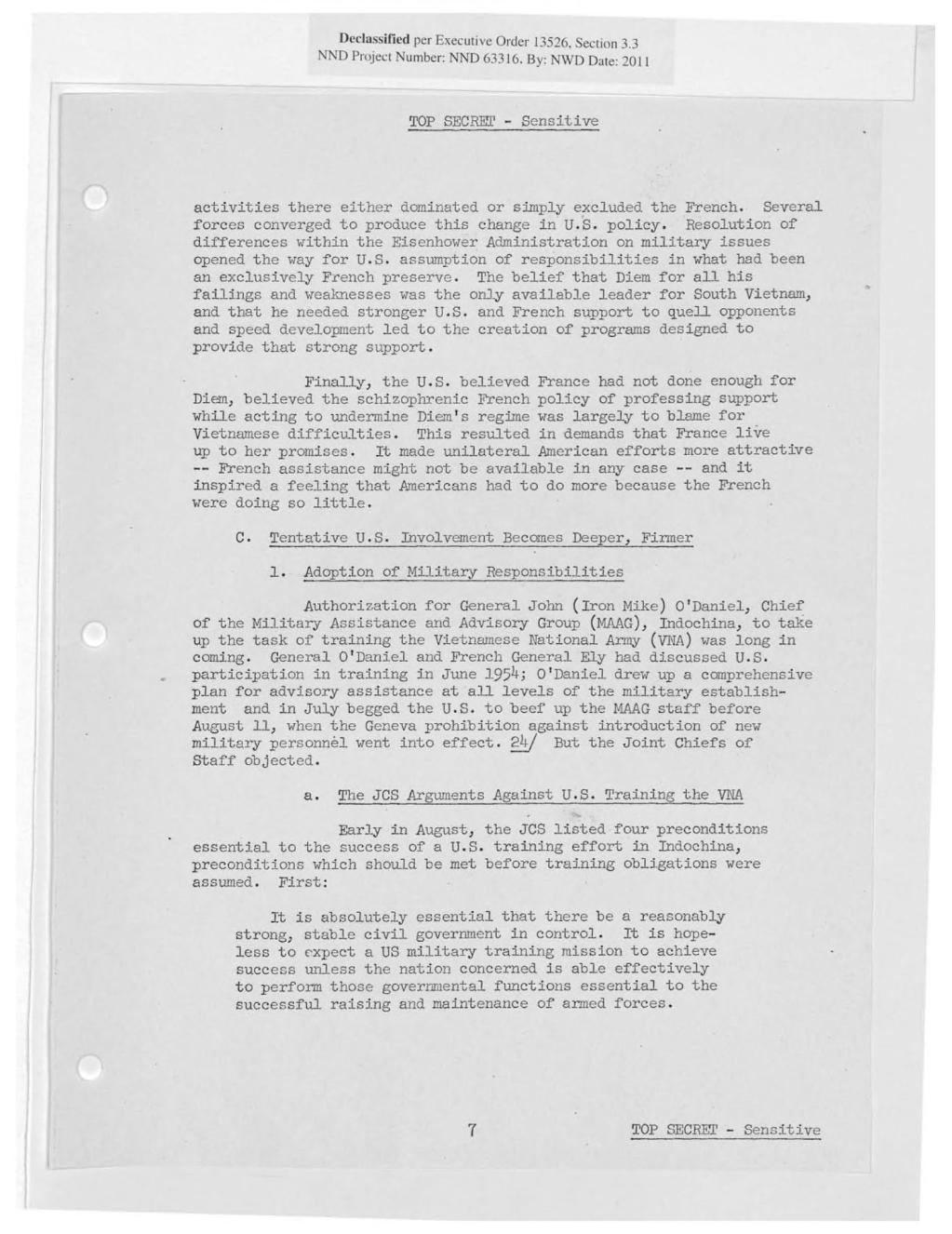Declassified per Executive Order 13526, Section 3.3
NND Project Number: NND 63316. By: NWD Date: 2011
TOP SECRET – Sensitive
activities there either dominated or simply excluded the French. Several forces converged to produce this change in U.S. policy. Resolution of differences within the Eisenhower Administration on military issues opened the way for U.S. assumption of responsibilities in what had been an exclusively French preserve. The belief that Diem for all his failings and weaknesses was the only available leader for South Vietnam, and that he needed stronger U.S. and French support to quell opponents and speed development led to the creation of programs designed to provide that strong support.
Finally, the U.S. believed France had not done enough for Diem, believed the schizophrenic French policy of professing support while acting to undermine Diem's regime was largely to blame for Vietnamese difficulties. This resulted in demands that France live up to her promises. It made unilateral American efforts more attractive — French assistance might not be available in any case — and it inspired a feeling that Americans had to do more because the French were doing so little.
- C. Tentative U.S. Involvement Becomes Deeper, Firmer
- 1. Adoption of Military Responsibilities
Authorization for General John (Iron Mike) O'Daniel, Chief of the Military Assistance and Advisory Group (MAAG), Indochina, to take up the task of training the Vietnamese National Army (VMA) was long in coming. General O'Daniel and French General Ely had discussed U.S. participation in training in June O'Daniel drew up a comprehensive plan for advisory assistance at all levels of the military establishment and in July begged the U.S. to beef up the MAAG staff before August 11, when the Geneva prohibition against introduction of new military personnel went into effect.24 But the Joint Chiefs of Staff objected.
- a. The JCS Arguments Against U.S. Training the VMA
Early in August, the JCS listed four preconditions essential to the success of a U.S. training effort in Indochina, preconditions which should be met before training obligations were assumed. First:
It is absolutely essential that there be a reasonably strong, stable civil government in control. It is hopeless to expect a US military training mission to achieve success unless the nation concerned is able effectively to perform those governmental functions essential to the successful raising and maintenance of armed forces.
